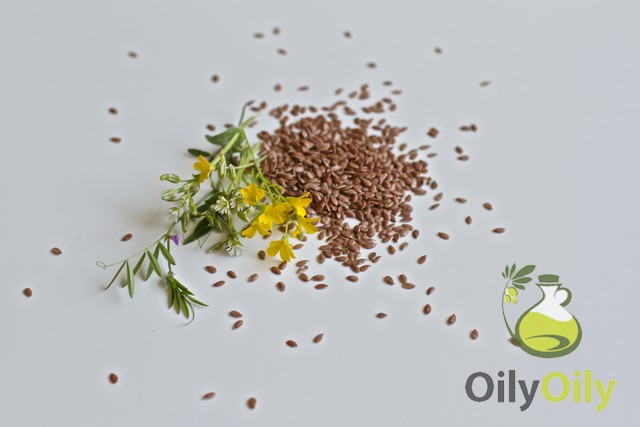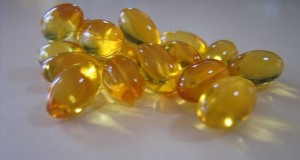
Flaxseed oil is a good source of alpha-linolenic acid. It is the omega-3 essential fat and a precursor to EPA and DHA vitally needed for your body. Flaxseed oil is usually taken internally or applied topically. As the University of Maryland Medical Center recommends, consume 1-2 tbsp. of flaxseed oil for skin benefits every day.
Using flaxseed oil may aid some people in acne treatment, but it doesn’t work for every person. It is proved that the oil helps reduce inflammation; there are several theories that flax helps solve some hormonal issues and lessen stress effects on the body although more clinical researches are needed to prove the theories.
SEE ALSO: Facing the Problem: Acne Treatment with Hemp Oil
Potential
The use of flaxseed oil in acne treatment is sensible because the omega-3 fatty acids in flaxseed lessen inflammation. Omega-6 fatty acids are known to have a pro-inflammatory effect while omega-3 fats are called anti-inflammatory.
The ratio of omega-6 to omega-3 fatty acids in the healthy body should be at least 4-to-1. Typically, Americans consume omega-6 and omega-3 essential fatty acids in a ratio of 10:1. When we substitute omega-3 fatty acids for omega-6 fatty acids found in sunflower and soybean oil we help our body lessen inflammation processes. The Acne Treatments Guide says that acne can be called a mainly inflammatory response of our body. So omega-3 fatty acids may help. Moreover, flaxseed oil possibly diminishes the impact of stress on the body, as the University of Maryland Medical Center declares. And stress can trigger inflammation as well. It usually takes a week or two to receive results.
SEE ALSO: Oil Cleansing with Jojoba Oil: Step-by-Step Guide
Flaxseed oil for skin
Besides the use of flaxseed oil for acne treatment, people consume and apply flaxseed oil for skin benefits. Flaxseed oil helps:
- Calm down inflamed skin
Taken orally or applied topically flaxseed oil shows skin-soothing properties as well as anti-inflammatory. Thus, psoriasis and eczema may benefit from flaxseed oil. According to a 2009 study described in the “British Journal of Nutrition”, women taking flaxseed oil decreased skin redness and roughness.
- Moisten dry skin
Many people use flaxseed oil for skin moisturizing. Omega-3 fatty acids moisten the skin. Moreover, omega-3 fatty acids can help with dry eyes syndrome as they may improve the quality of tears.
- Lessening wrinkles appearance
Wrinkles appear with age as a result of natural aging process. UV rays of the sun accelerate the aging process. The essential fats found in flaxseed oil are antioxidants. When they enter the skin cellular membranes they embed in them and make a protective barrier to UV rays and their dangerous free radicals.
SEE ALSO: Is Wheat Germ Oil Good for Scar Diminishing?
Considerations
Flaxseed oil is not necessarily effective for acne treatment for everyone as not all people are able to convert ALA received from flaxseed oil into EPA and DHA, as the University of Maryland Medical Center notes. For example, those suffering from diabetes or schizophrenia cannot do it. The ability for this conversion depends on the people’s age, gender and health conditions and is studied nowadays. And it is DHA and EPA that give the above-mentioned benefits to flaxseed oil for acne treatment. You may receive EPA and DHA from fish and fish oil.
 Oilypedia.com – Benefits And Uses Of Supplemental and Essential Oils
Oilypedia.com – Benefits And Uses Of Supplemental and Essential Oils 


